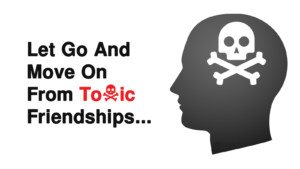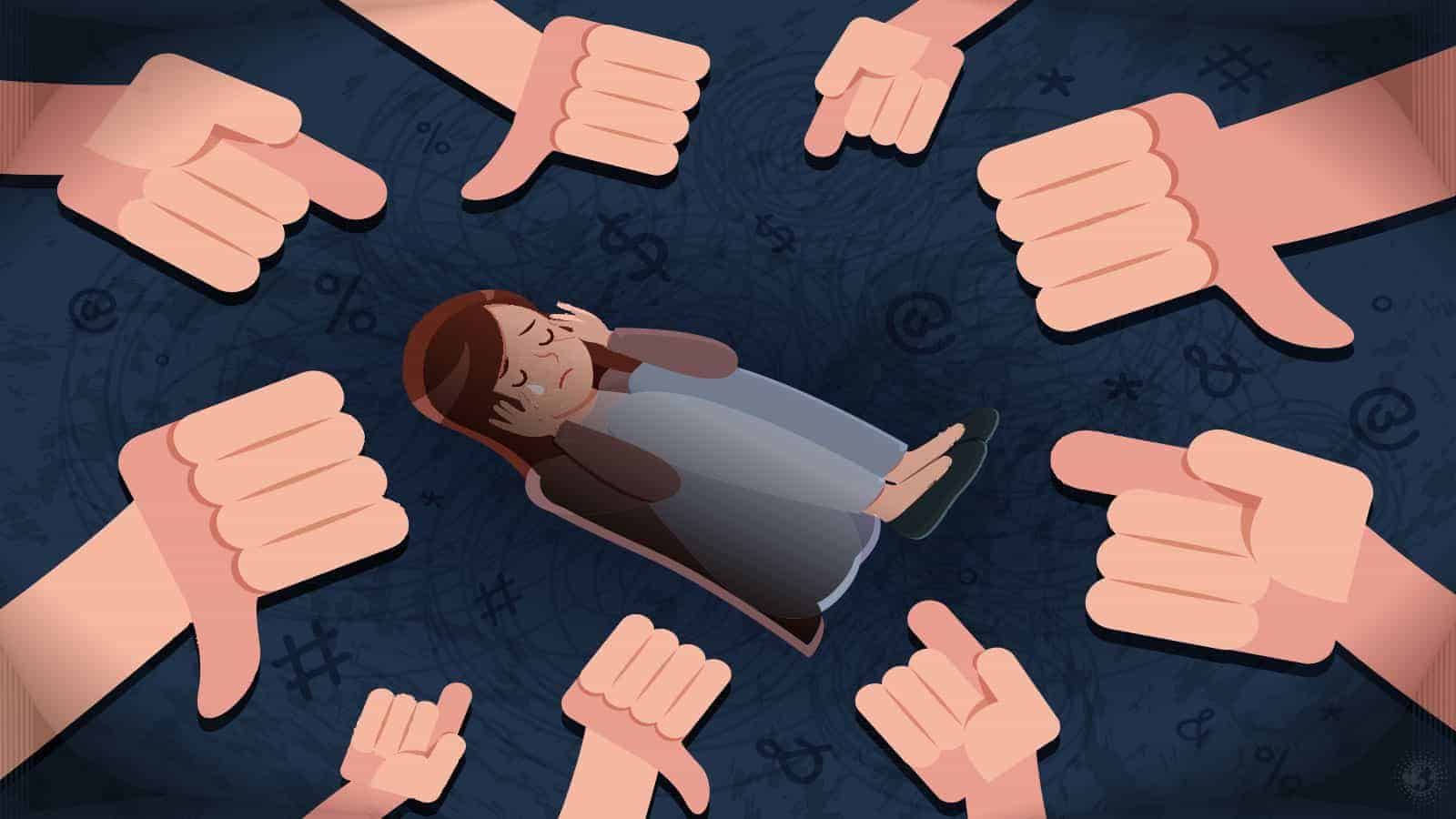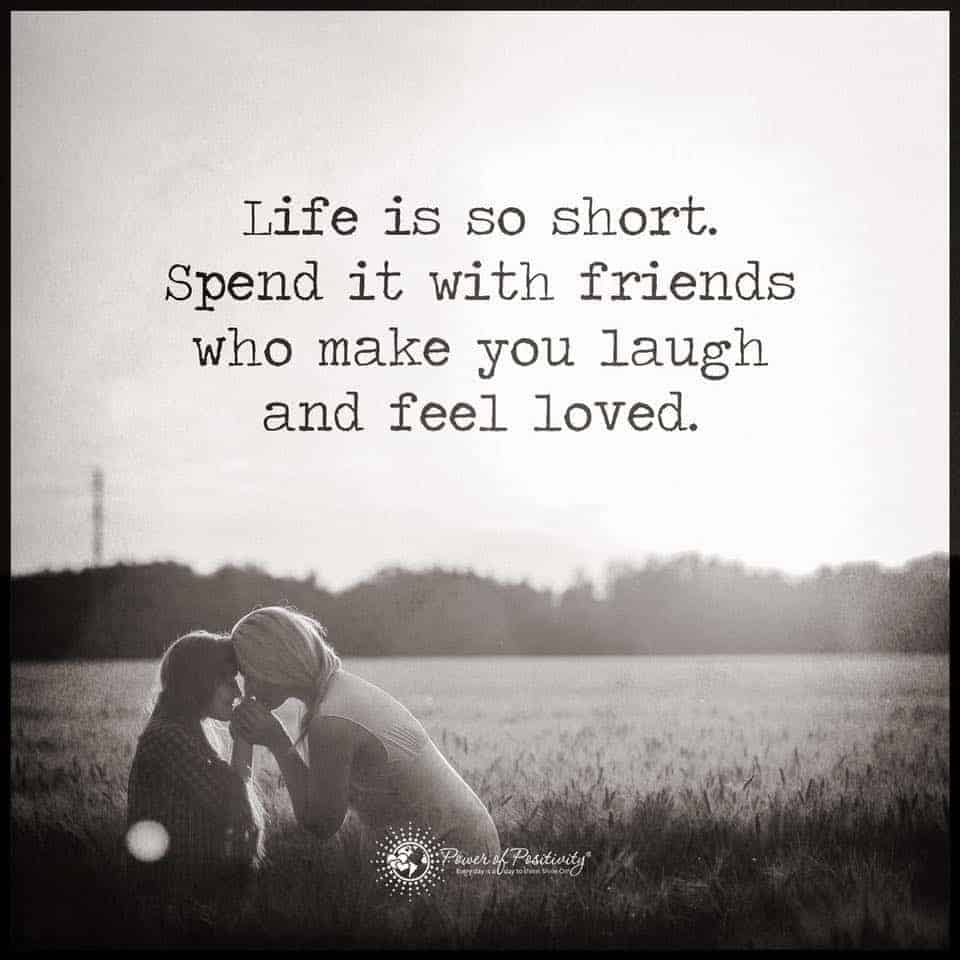Most friendships can be a little stormy from time to time, but if yours feels like you’re riding an emotional rollercoaster more often than not, you may be dealing with a toxic friend.
Here are some signs to look out for that may help you avoid getting tangled up in a toxic friendship.
13 Red Flags That Warn You of Toxic Friends
1. They Make You Feel Insecure
Though they often seem supremely confident, the majority of toxic people have little to no sense of self-worth. Often, they will compensate for their low self-esteem by tearing others down so they can feel superior in comparison.
A toxic friend will try to bring you down to her level through frequent criticism, nitpicking, unsolicited advice, and subtly demeaning “jokes” at your expense. If you react negatively to her mistreatment, she will likely accuse you of being oversensitive. Or, she will insist she only has your best interests at heart.
2. They Compete with You
There’s nothing wrong with a little healthy competition between pals. That is, as long as that competition is limited to the soccer field, bar trivia, or board games. But toxic people like to compete with you at everything. They consider work, love, sex, friendship, material success, beauty, all fair game. What’s more? They are only satisfied when you lose.
Sometimes their competitiveness is overt, like making a move on the man or woman they know you’re interested in, chasing after one of your exes, or applying for a position they know you’re hoping to get.
Other times it’s more covert and takes the form of one-upmanship: If you share a piece of good news, they have to top it with something better. If you’re talking about a recent achievement, they’ll redirect the conversation to brag about their successes.
A competitive, toxic friend will rarely offer congratulations when they’re due or take any sincere joy in your triumphs. Instead, they’ll use them as a jumping-off point to demonstrate how they’re better.
3. You’re Always “Walking on Eggshells” Around Them
Toxic friends are people who can dish it out for days but can’t take it for a second. They have no qualms about criticizing you relentlessly. Furthermore, they expect you to tolerate it. But if you offer even constructive criticism, you are “attacking” them. If you disagree with their choices and tell them so, you’re a bad friend. If you point out their hurtful behavior, you’re overreacting.
Ironically, even as they accuse you of being “too sensitive,” toxic people are prone to having angry outbursts, throwing tantrums, and holding grudges. If you find you can’t have difficult conversations with a friend without them erupting in anger, it’s quite probable you’re dealing with a toxic friendship.
4. They Monopolize Every Conversation
Dialogue with a toxic friend is never a two-way street. Every minute you spend talking about yourself is a minute less. They love to be in the spotlight, so it’s common for them to redirect the conversation to themselves at every opportunity.
Toxic friends will rarely ask you about your life or show real interest in what you have to say. They aren’t listening attentively when you talk; they are planning what they intend to say next. When you’re trying to tell them something important, they’re likely looking at their phone.
In healthy friendships, your friends will talk and listen in equal measure, show real interest in what you have to say, and be supportive when you need it. This is rarely the case with toxic people.
5. You Feel Drained After Spending Time with Them
A night out with some good friends feels uplifting and refreshing. In contrast, a night out with your toxic friend leaves you feeling like you need a nap. Toxic people seem to consider complaining a form of recreation, and the more you listen and try to empathize, the needier they seem to become.
Toxic people enjoy indulging in long monologues about their many hardships, and they never seem to talk to you, only at you. In the rare case that they seek your advice, they won’t take it, and next time you meet, you’ll be hearing the same monologue about their latest bad decisions.
Above all, a toxic friend is too preoccupied with his unhappiness to consider that you might be struggling and require support, also – unless he sees an opportunity to give you some patronizing advice.
6. They Only Call When They Need Something
The toxic friend won’t return your calls, but they’ll turn up when they need to borrow money. They’ll forget to invite you to the party, but they’ll remember you exist when they need someone to help them move into their new apartment. They’ll turn down your invitation to go out for coffee, but they’ll come knocking when they’re depressed and need someone to listen to them complain.
It’s common in friendships like these to feel used or forgotten except when the toxic person has some need you can fulfill. If you often feel like your friend takes more from you than they give, you are likely dealing with a toxic friendship.
7. Their Lives are Non-Stop Drama
Everyone experiences bumps in the road from time to time: job loss, a bad breakup, mental health problems, family strife. But the toxic person’s life is like a vortex of constant drama. Problems seem to follow them wherever they go, and conveniently they are always somebody else’s fault.
The toxic person can’t hold down a job for more than a few months. All of their romantic relationships seem to go up in flames, and every ex they talk about is “crazy.” They get kicked out of apartments, lose friendships, and frequently struggle with substance abuse, compulsive spending, or other vices – and they sometimes even expect you to foot the bill.
8. They Can’t Be Trusted
Anything you tell the toxic person in confidence will likely be shared with other members of your social circle. Gossip is one of their favorite pastimes, and you can be sure that if they discuss others’ lives with you, they’re probably talking about you, too.
You often find yourself questioning whether their stories are real, and when you talk to mutual acquaintances, you’ll frequently find yourselves dealing with multiple versions of the same stories. The details never quite add up with toxic people, and it’s common for them to inflate their achievements to seem more impressive to others.
9. You Don’t Like Who You Become Around A Toxic Friend
Toxic people have an uncanny way of bringing out the absolute worst in you. You feel more combative, angry, anxious, and wound up after time spent with them. You might find yourself overindulging in alcohol or drugs, complaining and gossiping more than usual, or having a worse outlook on yourself and your life when you’re around them.
10. You Have to Apologize for Them
Even if the toxic person in your life is decent to you, they’re frequently unkind to others. They’ll be rude to waiters and customer service people, they’ll insult your other friends, and they’ll cause chaos at parties and group gatherings.
You’ll probably find yourself apologizing for their embarrassing behavior more than you’d like, and even making excuses for why they’ve acted the way they have: “He’s been having a tough time since his girlfriend left,” or “She doesn’t always think things through before she says them, but I promise she’s charming once you get to know her.”
Over time, you might find the rest of your social network disappearing as your other acquaintances try to limit their contact with the toxic person in your life.
11. You Have to Apologize to Them
If the toxic person in your life hurts your feelings and you try to confront them about it, the odds are good that by the end of the conversation, you will be apologizing to them.
Manipulation is common among toxic people who find criticism unbearable, so if you try to air a grievance with them, they’ll have a reason why you’re wrong to do so. They’ll claim that you’re too easily offended, they were only joking, but you took it seriously, they were merely reacting to what you did in the first place, and so on.
Toxic people can’t stand to be wrong. Thus, they’ll pull out all the stops to get themselves off the hook.
12. Your Other Friends Dislike Them
It’s nearly guaranteed that not all your besties will get along with each other. Some personalities don’t mesh well. But if most or all of your other friends shun and avoid one, in particular, there’s probably a good reason.
13. You’re Happier When They’re Not Around
Anytime you get a break from your toxic person; you may notice positive changes. Your mood lifts, your self-esteem increases, and you feel better about life. That’s probably not a coincidence.
 Final Thoughts on Identifying Toxic Friends
Final Thoughts on Identifying Toxic Friends
Though you shouldn’t immediately dump a friend over occasional conflict if one of your friends exhibits most or all of these signs, consider opting out of the relationship for your wellbeing.














 Community
Community

